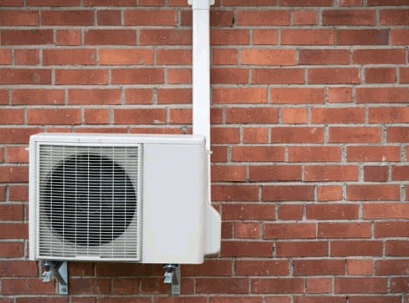Curious about how to keep your home warm in an energy-efficient and environmentally friendly way?
Discover the air source heat pump. We explore what an air source heat pump is, how it works, the different types available, its benefits, and potential drawbacks.
Learn about the installation process, required maintenance, suitability for different homes, and alternative options. Uncover all about this innovative heating solution.
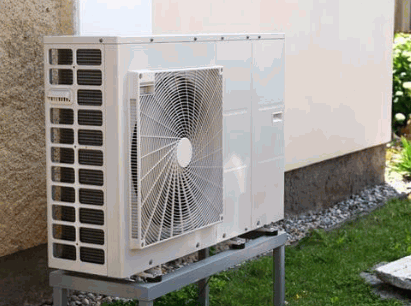
What Is An Air Source Heat Pump?
An air source heat pump is a renewable energy system that converts air source heat into energy to heat your home, offering an efficient and low-carbon alternative to traditional gas boilers in the UK.
These heat pumps work by extracting heat from the outside air, even in cooler temperatures, and then transferring it into your home through a heat distribution system. This process is highly efficient, making it a cost-effective solution for heating your living space while reducing your carbon footprint. Compared to conventional boilers, air-source heat pumps can significantly lower your energy bills and are considered more environmentally friendly. As the UK aims to increase its renewable energy usage, these systems play a crucial role in achieving sustainability goals.
Check out: How Long Do Air Source Heat Pumps Last
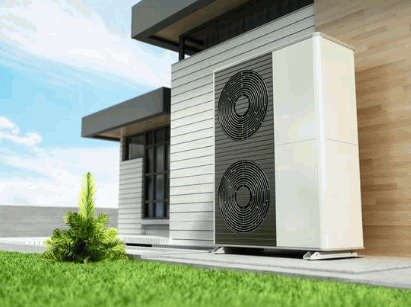
How Does An Air Source Heat Pump Work?
An air source heat pump works by extracting heat from the air outside your home and using it to increase the temperature inside, thus providing an efficient heating system.
These systems operate based on the principles of thermodynamics. The heat extraction process involves absorbing thermal energy from the ambient air, even in colder temperatures. Once the heat is captured, it is then compressed using a refrigerant, which increases its temperature. The compressed, high-temperature gas is then circulated through the system to distribute heat effectively throughout the indoor space. This cycle of extraction, compression, and distribution enables air source heat pumps to provide consistent and efficient heating, offering cost-effective solutions for maintaining comfort in varying weather conditions.
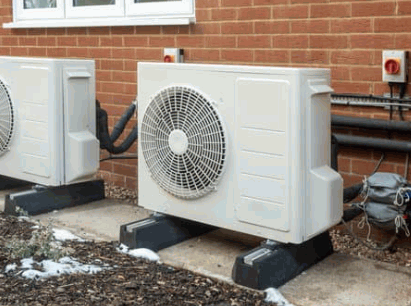
What Are The Different Types Of Air Source Heat Pumps?
There are several types of air-source heat pumps available, including air-to-air heat pumps, air-to-water heat pumps, and hybrid heat pumps, each designed to suit different heating needs and system configurations.
Air-To-Air Heat Pumps
Air-to-air heat pumps function similarly to an air conditioner in reverse, providing heating by transferring heat from the outside air into the indoor environment.
During operation, air-to-air heat pumps utilise refrigerant to absorb heat from the outdoor air and release it inside the home through a duct system. This process is highly efficient even in colder climates, extracting warmth from the air to maintain comfortable indoor temperatures. When compared to traditional heating systems, these pumps offer increased energy efficiency and cost savings.
One of the key advantages is their ability to both heat and cool the home, acting as a dual-purpose system to provide year-round comfort.
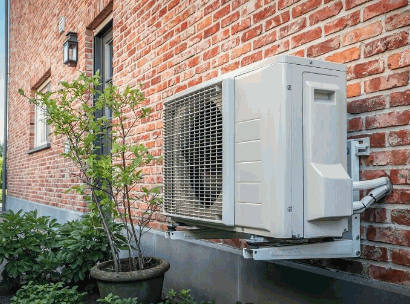
Air-To-Water Heat Pumps
Air-to-water heat pumps are designed to heat water that can be used for central heating systems and hot water supply in homes, making them highly efficient and versatile.
These innovative systems work by extracting heat from the outside air and transferring it into the water that circulates through radiators or underfloor heating systems. This method not only provides a sustainable way to heat your home, but it also significantly reduces energy bills due to its high efficiency.
- Air-to-water heat pumps seamlessly work together with existing water-based heating systems, requiring minimal alterations to your current setup. This makes them a cost-effective solution for homeowners looking to upgrade their heating systems while maximising energy efficiency.
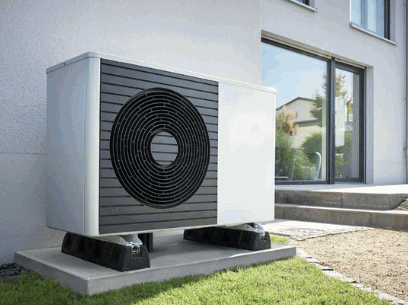
Hybrid Heat Pumps
Hybrid heat pumps combine the operation of an air-source heat pump with a traditional gas boiler to optimise heating efficiency and reduce running costs.
One of the key benefits of hybrid heat pumps is their ability to maintain efficiency by balancing the use of renewable energy and gas. The system can switch between the heat pump and gas boiler based on external temperatures, ensuring optimal performance in varying weather conditions. For instance, the heat pump can handle most of the heating during mild weather, but the gas boiler automatically kicks in during extremely cold spells to meet the increased demand for heat. This dynamic flexibility allows homeowners to benefit from both lower running costs and reduced environmental impact.
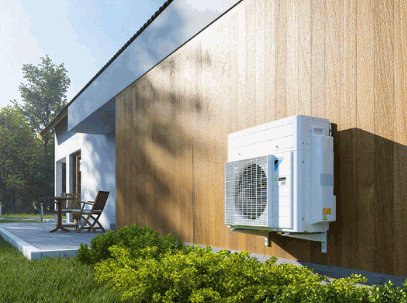
What Are The Benefits Of Using An Air Source Heat Pump?
Using an air-source heat pump provides numerous benefits, including improved energy efficiency, significant cost savings, and a reduction in environmental impact due to its reliance on renewable energy sources.
Energy Efficiency
Air source heat pumps are renowned for their high efficiency, as they can provide heating even at low outdoor temperatures by harnessing air source heat effectively.
One of the key factors contributing to the high efficiency of air-source heat pumps is their ability to operate in various temperature conditions. Unlike traditional heating systems, air-source heat pumps can extract heat from the air even when it is cold outside, making them a reliable option for year-round comfort.
Another aspect that sets air source heat pumps apart is their advanced system design. By utilising sophisticated technology, these pumps can transfer heat with minimal energy consumption, resulting in impressive efficiency ratings. In fact, air-source heat pumps often boast higher efficiency levels compared to conventional heating systems, making them a cost-effective and eco-friendly choice for homeowners.
Cost Savings
Air source heat pumps can lead to considerable cost savings in the long term, thanks to their lower running costs and the availability of government grants to offset initial installation expenses.
Compared to traditional heating systems, air source heat pumps are more energy-efficient, providing significant savings on monthly utility bills. The lower running costs stem from their ability to harness renewable heat sources, such as the ambient air. Along with reduced operational expenses, homeowners can take advantage of various government grants and incentives designed to promote eco-friendly heating solutions.
One notable aspect of air source heat pumps is their ability to deliver consistent performance throughout the year, regardless of outdoor temperatures. This reliability translates into long-term savings for households, offsetting the upfront costs of purchasing and installing the system.
Environmentally Friendly
Air source heat pumps are an environmentally friendly heating solution, producing low-carbon emissions and utilising renewable energy sources to minimise their environmental impact.
By harnessing heat from the air, these pumps provide an efficient way to heat homes and buildings while significantly reducing greenhouse gas emissions. This sustainable technology not only helps to lower carbon footprints but also aligns with the global push towards cleaner energy solutions. In a world where climate change is a pressing issue, air source heat pumps offer a practical and eco-friendly alternative to traditional heating systems, supporting efforts to combat environmental degradation and promote a greener future.
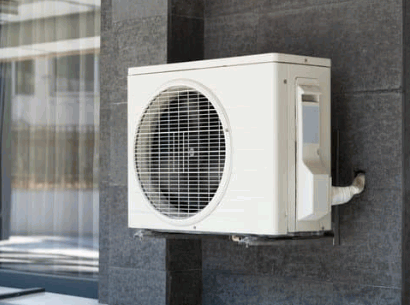
What Are The Potential Drawbacks Of An Air Source Heat Pump?
Whilst air source heat pumps offer many benefits, there are potential drawbacks to consider, such as high initial costs, noise levels during operation, and their reliance on outside temperatures for optimal performance.
Initial Cost
One of the primary drawbacks of air source heat pumps is their high initial cost, which includes both the price of the unit and the installation expenses.
Unit prices for air source heat pumps generally range from £2,000 to £8,000 depending on the size and efficiency of the system. The cost of installation can also be significant due to the complexity of the required work, which may involve ductwork modifications, electrical upgrades, and permitting fees.
Homeowners looking to invest in energy-efficient heating solutions can take advantage of government grants to help offset these initial costs. Various financial assistance programmes exist at the national, regional, and local levels to incentivise the adoption of renewable energy technologies.
Noise Level
The noise level generated by air source heat pumps during operation can be a concern for some homeowners, impacting overall comfort and requiring consideration during installation.
One of the primary sources of noise in air-source heat pumps is the compressor, which can produce a humming or vibrating sound. The airflow through the unit and outdoor fan can also contribute to the overall noise level. To mitigate these issues, proper installation is key. Ensuring that the unit is placed on a stable surface, away from walls or other obstructions, can help reduce vibrations and noise transmission.
Dependence On Outside Temperature
The efficiency and performance of air source heat pumps can be affected by outside temperature, as they rely on extracting heat from the ambient air.
When the outside temperature drops below a certain level, the heat pump may struggle to extract enough heat to efficiently warm the indoors. On the other hand, during hot summer days, the heat pump may have difficulty dissipating heat efficiently, leading to decreased performance.
Optimising the system operation under different temperature conditions is crucial to ensure maximum efficiency. This can include adjusting thermostat settings, using supplemental heating methods, such as electric resistance coils or geothermal heat pumps, and regular maintenance to keep the system running smoothly.
Real-world performance data has shown that air source heat pumps can still operate efficiently in a wide range of temperatures. For example, in moderate climates, where temperatures rarely dip below freezing or soar to extreme highs, air source heat pumps can provide consistent and reliable heating and cooling.
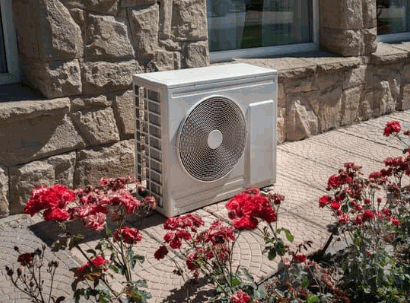
How Is An Air Source Heat Pump Installed?
Installing an air source heat pump involves several steps, including site assessment, system design, and commissioning by a qualified expert or MCS-certified installer to ensure optimal performance and compliance with regulations.
During the initial site assessment, the location of the heat pump needs to be evaluated to ensure proper installation. Factors such as available space, orientation, and proximity to power sources play a crucial role in determining the most suitable placement. System design involves the selection of the right heat pump model based on the property’s heating requirements and energy efficiency goals.
Commissioning by a qualified expert or MCS-certified installer is essential to guarantee that the installation meets industry standards and regulations. Hiring certified professionals ensures that the system functions efficiently and safely, reducing the risk of potential issues down the line.
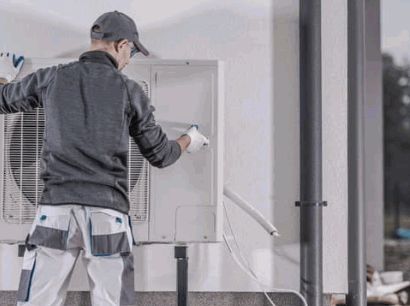
What Is The Maintenance Required For An Air Source Heat Pump?
Regular maintenance of an air source heat pump is crucial to ensure its efficiency and longevity, including tasks such as cleaning filters, checking refrigerant levels, and adhering to the manufacturer’s warranty requirements.
It is recommended to clean or replace the air filters every 1-3 months to keep the system running efficiently and prevent blockages that could reduce airflow.
Checking the refrigerant levels annually and topping up if needed helps maintain optimal performance. Following the manufacturer’s guidelines for maintenance not only ensures system efficiency but also keeps the warranty valid.
Homeowners should also schedule professional annual inspections to detect any issues early and ensure the system functions smoothly throughout the year.
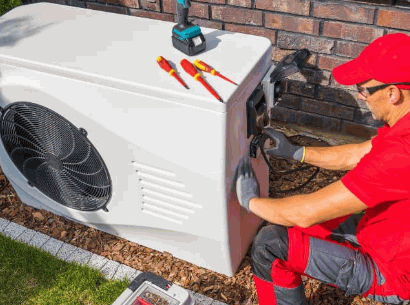
Is An Air Source Heat Pump Suitable For All Homes?
The suitability of an air source heat pump for a home depends on various factors, including the level of insulation, existing heating system compatibility, and space for installation.
High-quality insulation plays a crucial role in maximising the efficiency of an air source heat pump, reducing heat loss, and ensuring optimal performance. Homes with well-insulated walls, roofs, and floors are more likely to benefit from the technology, as it can efficiently extract heat from the outdoor air even in colder climates.
The compatibility of the existing heating infrastructure is pivotal. Homes with traditional boiler systems may need modifications or upgrades to accommodate an air source heat pump seamlessly. For instance, houses with underfloor heating or low-temperature radiators are often better suited for this technology.
When considering the space for installation, adequate outdoor space is necessary for positioning the external unit of the heat pump. Properties with limited outdoor areas may require creative placement solutions or alternative systems. For instance, rooftop installations or compact models could be viable options in such cases.
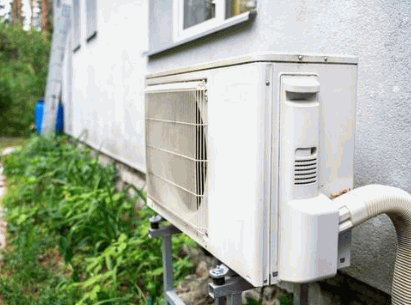
What Are The Alternatives To An Air Source Heat Pump?
Alternatives to air-source heat pumps include traditional heating systems like gas boilers, as well as other renewable energy products such as ground-source heat pumps and solar thermal systems.
When comparing air source heat pumps with traditional heating systems like gas boilers, one notable advantage is their energy efficiency, which leads to lower operating costs over time. Air source heat pumps also have the flexibility to provide both heating and cooling, making them a versatile option for homeowners.
On the other hand, ground source heat pumps offer even higher efficiency levels, as they draw heat from the ground, which maintains a more stable temperature compared to the air. The installation cost of ground source heat pumps can be higher upfront.
Solar thermal systems, on the other hand, utilise solar energy to provide heating for homes. While they are a clean and sustainable option, they are often more suitable for providing hot water rather than space heating.
